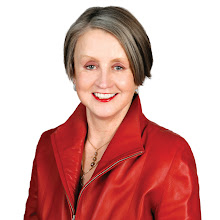Carolyn Said, Chronicle Staff Writer
Saturday, October 24, 2009
The Bay Area locales where homes sell the most above asking price tend to be relatively affordable, according to a report from ZipRealty released Friday.
That underscores the sway that investors and first-time home buyers hold in today's real estate market, where bargain homes bring out multiple bids that drive up the price.
The highest offers (measured by sales price-to-list price ratio) were clocked in the East Bay's 94608 ZIP code, which includes Emeryville and part of Oakland. Homes there on average sold for 105.65 percent of the asking price in the third quarter, said ZipRealty, a national real estate brokerage with headquarters in Emeryville.
That ZIP stood out as one of the top 10 "hottest" U.S. areas in terms of offers exceeding asking price, Zip said.
"The housing stock there is single-story Craftsmen style two-bedroom one-bathroom homes built in the 1920s through 1940s," said David Kerr, a Zip Realtor who specializes in the East Bay. "The homes are in the $200,000 to $300,000 price range. I've been writing offers there like nobody's business and getting beat out, often by cash offers."
All-cash offers are the telltale mark of investors. Kerr said a fair number of homes on the market in Oakland were foreclosures that investors bought, fixed up and flipped. "I've seen the same house picked up at a (foreclosure) auction go back on the market and sell higher than the highest comparable sale in that area because it's been rehabbed," he said.
The third "hottest" Bay Area ZIP code, 94606 in central Oakland, is similarly affordable with a median price of $279,000, he said.
Of both ZIP codes, Kerr said: "Homes here were selling in the $400,000s and $500,000s at the height of the market and now you're picking them up in the $200,000s and $300,000s."
The second hottest Bay Area ZIP, 95122 in South San Jose, is one of the region's foreclosure hot spots, where bargain-priced bank repossessed homes are readily available.
On the other side of the spectrum, the "coldest" ZIP code in the Bay Area, where homes sold for the most below asking price, was Los Gatos/Monte Sereno, where the average list price is currently $2.5 million, according to Movoto.com. Homes there on average sold for 92.26 percent of their asking price in the third quarter, Zip said.
The sales ratio was also low in the much more affordable Rio Vista, a troubled town in Solano County, where homes sold for 93.47 percent of their asking price, according to the report.
Nationwide, the hottest ZIP code was in the Rancho Bernardo community of San Diego, where homes sold for 125 percent of list price in the third quarter, Zip said. The coldest ZIP was Denton, Texas, where homes went for 30 percent of their asking price.
Hot ZIPs
These are the Bay Area ZIP codes where houses sold for the highest ratio to their asking price in the third quarter.
City ZIP Ratio
Emeryville 94608 105.65%
San Jose 95122 105.22
Oakland 94606 105.06
Berkeley 94703 104.78
San Lorenzo 94580 104.45
Cold ZIPs
These are the Bay Area ZIP codes where houses sold for the lowest ratio to their asking price in the third quarter.
City ZIP Ratio
Rio Vista 94571 93.47%
Napa 94558 93.45
Alamo 94507 93.07
Half Moon Bay 94019 92.94
Los Gatos/ Monte Sereno 95030 92.26
Source: ZipRealty
E-mail Carolyn Said at csaid@sfchronicle.com.




